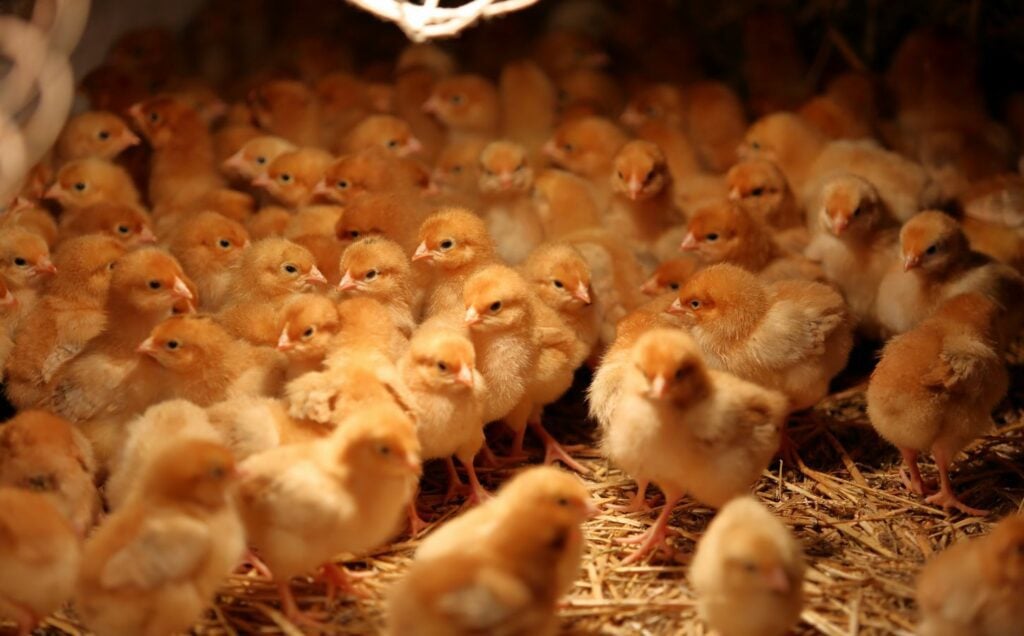UK retailers are reportedly delaying a move to ban the culling of day-old male chicks in the egg industry.
According to a report by the Guardian, supermarkets are unwilling to promote less cruel egg products alongside standard options. It has been suggested that this is because consumers may learn about the culling process for the first time.
Cockerels are ‘useless’ to the poultry sector. They don’t grow quick enough to sell for meat and they can’t lay eggs. As a result, male chicks are a by-product of the industry and condemned to death as soon as they hatch.
Around 330 million male chicks are killed each year in Europe, 29 million of which are thought to die in the UK. They are commonly killed either by being ground to death in an industrial machine or gassed in large numbers.
The UK is falling behind fellow European countries France, Germany, and Italy, all of which have banned chick killing.
Poultry farmers are able to avoid having to cull male chicks by using available breeding technology to guarantee only female chicks hatch.
Are supermarkets blocking a ban?
Respeggt, a German company offering such sexing technology, has tried to enter the UK market but has met resistance. Its chief operating officer, Carmen Uphoff, told the Guardian that they had tried to enter the UK but have been “unsuccessful.”
“We are trying to talk to everyone, but the trouble with the UK is people are not aware [of where eggs come from]. We are trying to adopt different strategies and enter in a small way to learn how the UK works.”
She added: “I have suggested starting with just one brand that is ‘free of chick culling’ on the shelves but, again, the response is that the customer will realise all the other eggs are ‘with chick culling’, and they wouldn’t have known that before.”
UK supermarkets themselves have been citing a lack of consumer demand.
While consumers appear to know the cruelty of battery egg production, leading to a UK ban in 2012, chick culling remains less widely understood or acknowledged. The Humane League claims that this lack of awareness is what maintains demand for eggs and perpetuates the cycle.
Alternatives to chick culling
In-ovo egg sexing technology allows poultry farmers to identify which eggs will produce male chicks early in the incubation phase. This allows them to be repurposed before embryos become fully fledged animals.
To date, just one small-scale poultry farm in the UK is using Respeggt’s technology. Piggotts Poultry Breeders have sold around 6,000 sexed day-old chicks, mostly to domestic bird keepers. The company is saddened that bigger operations don’t use readily available systems to prevent needless animal deaths. However, owner Richard Piggott understands that this will need to be led by consumer demand and therefore, the cost of living crisis.
“It was always difficult before [the cost of living crisis] but my understanding was that once the egg got to the supermarket shelf, the price difference was going to be between 5p and 8p, which isn’t massive,” he told The Guardian.
Chick culling bans in Europe
While the UK fails to make meaningful moves toward higher welfare standards, a number of European countries are embracing efforts to reduce or prohibit chick culling.
Last month, Italy revealed that it will be implementing a full ban on make chick slaughter by 2026. The move will save around 25 to 40 million baby birds each year, and comes as the Italian egg producer’s trade association, Assoavi, revealed its support for in-ovo sexing techniques.
France’s chick slaughter ban came into effect at the end of 2021 and Germany followed suit this year.






